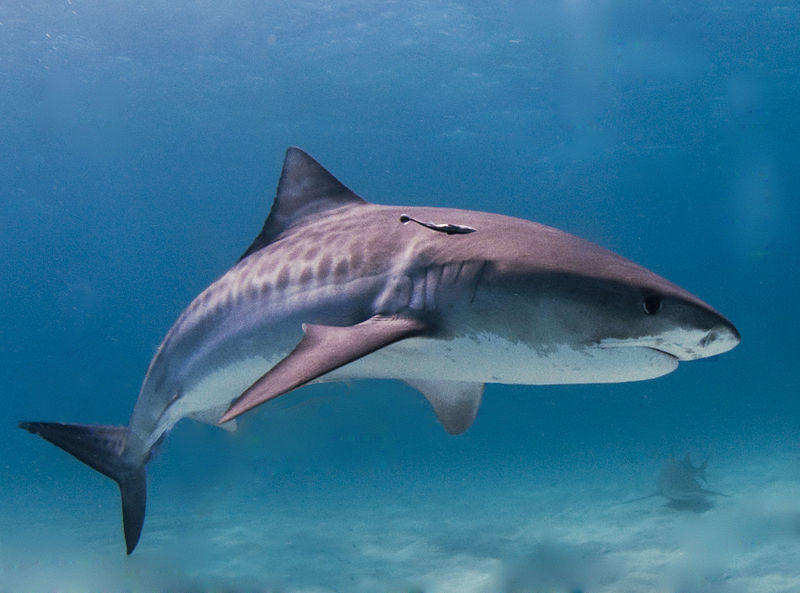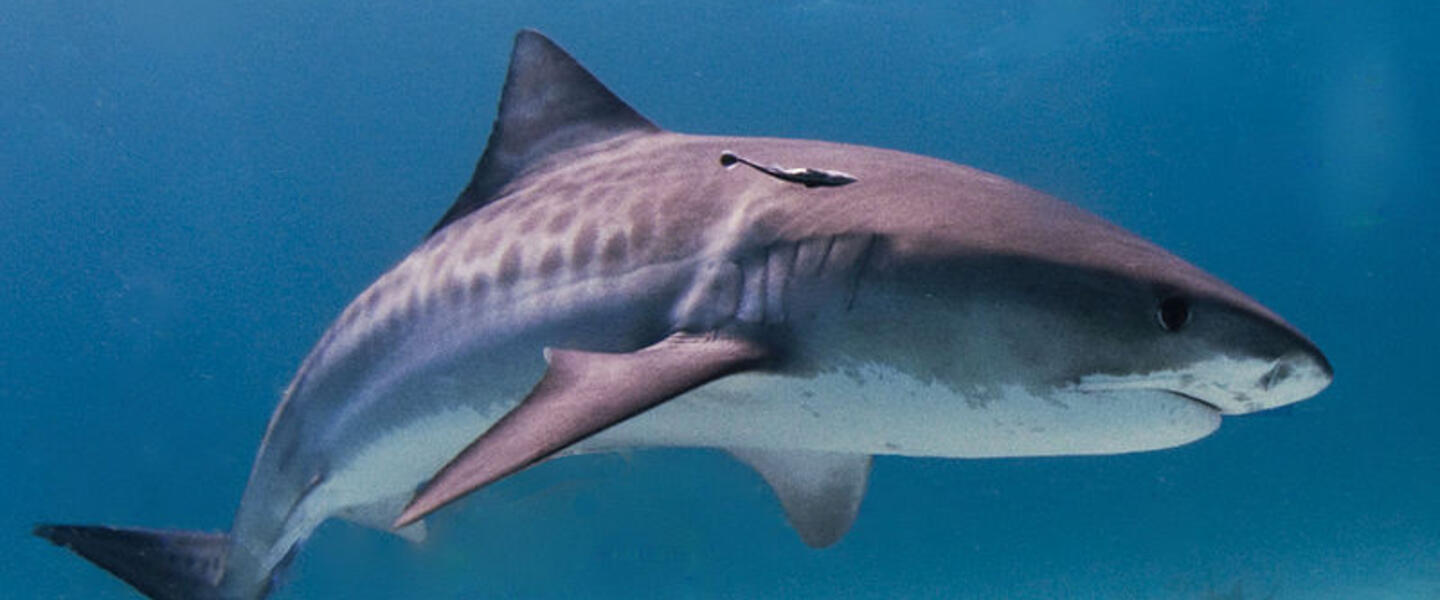
Section Branding
Header Content
Shark Week: Georgia Facts and Stories
Primary Content

“Live every week like it’s shark week.” For me, that means “do not enter the water under any circumstances.” That’s not at all fair to sharks, though. They’re a vital player in oceanic ecosystems, supremely intelligent and fascinating. In Georgia, there are rarely any attacks and very, very few result in fatalities. According to the International Shark Attack File (ISAF), Georgia has seen only 4 attacks from 2001-2012 and none of those were fatal. In neighboring Florida, with a much larger coastline, the number of attacks was 26 in 2012 alone, though none of those were fatal either. According to a 2011 interview with Duane Harris, director of the Coastal Resources Division of the Georgia DNR, shark attacks are limited in Georgia because of our “ample food supply.” That is, sharks have plenty of their natural prey around and have no need to attack humans as a food source.
Georgia is home to a variety of shark species, which you can explore on the GA Department of Natural Resources shark species page online. Tiger sharks and bull sharks are the two most commonly associated with aggressive behavior off our coast… except that they aren’t found exclusively in the ocean.
Bull sharks can be found in brackish and freshwater. Yes, freshwater. In 2011, 16-year-old Noel Todd fished an 8-ft bull shark out of a creek in Valona, Georgia. According to the article, the sharks (there were two nearby, only one caught) were likely following shrimping boats in the area that toss unwanted fish overboard. Clever sharks.
Savannahnow.com has a list of ways to reduce the risk of shark attacks.
•Avoid waters with known effluents or sewage and those being used by sport or commercial fisherman, especially if there are signs of bait fishes or feeding activity. Diving seabirds are good indicators of such action.
•Sightings of porpoises do not indicate the absence of sharks -- both often eat the same food.
•Refrain from excess splashing and do not allow pets in the water because of their erratic movements.
•Exercise caution when occupying the area between sandbars or near steep drop-offs -- these are favorite hangouts for sharks.
•Avoid being in the water during darkness or twilight hours when sharks are most active and have a competitive sensory advantage.
You can see the full list online at Savannahnow.com.
Given the general anxiety and fear of shark attacks, it’s ironic that humans are the sharks’ biggest predator, consuming millions worldwide each year. Georgia DNR does allow some fishing for some shark species. You’ll need a license and be sure to follow the limits listed online. You can find the limits for each species listed under their heading on DNR’s webpage.






